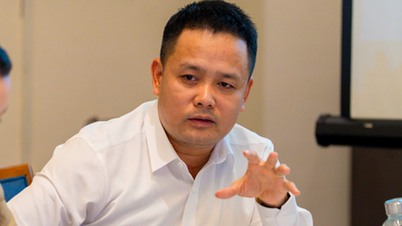Germany's coalition government hopes the new bill passed last week will help boost defense capabilities as the European security landscape changes and US foreign policy adjusts.
The reform plan aims to increase the army to 260,000 soldiers, from about 180,000 now, with 200,000 reservists by 2035. The first phase focuses on voluntary conscription with greater incentives, including a starting salary of 2,600 euros a month, 450 euros more than now. If the target is not met, the government can trigger compulsory conscription.
From next year, all 18-year-olds will receive a questionnaire about their military service aspirations; men will be required to answer. From 2027, men over 18 will have to undergo compulsory health checks.

The plan comes as the US administration stresses the need for Europe to secure itself and as fighting in Ukraine continues, with some experts warning that Eastern Europe could come under further pressure in the coming years.
Before reaching the new deal, Germany's ruling coalition debated a conscription model that included a proposal to use a "lottery" to select young men for medical examinations and military service.
Defence Minister Boris Pistorius has rejected this option, saying financial incentives and more attractive service conditions are the right way forward. Germany used to have compulsory military service for men aged 18-23 before suspending it in 2011.
The agreement is currently awaiting ratification by the German Parliament and, if approved, will come into effect on January 1, 2026. Mr. Pistorius said the new system could become a model for other European countries to refer to, while affirming that strengthening deterrence would reduce the risk of conflict.
The plan remains controversial, however. Many left-wing voters oppose the reintroduction of any form of compulsory military service. A Forsa poll found that 80% of Die Linke voters do not support the idea. In addition, the number of conscientious objections has increased sharply since the conflict in Ukraine began.
Some young people expressed concern that being called up for military service could affect their studies, while others supported increased investment in the military but still opposed compulsory service.
Germany’s armed forces have been underfunded for decades after the Cold War, when Germany kept defense spending below 2% of GDP. That changed after 2022, when the government announced its “Zeitenwende” plan, setting up a 100 billion euro fund to modernize the military.
Since Chancellor Merz took office earlier this year, Germany has continued to raise spending targets and emphasize Germany's defense role in Europe. The chancellor has said Germany needs to increase its military capabilities, as he argues that countries must demonstrate their ability to defend their territory.
Source: https://congluan.vn/ke-hoach-cua-duc-nham-xay-dung-luc-luong-quan-doi-lon-nhat-chau-au-10318966.html







![[Photo] Prime Minister concludes trip to attend G20 Summit in South Africa](/_next/image?url=https%3A%2F%2Fvphoto.vietnam.vn%2Fthumb%2F1200x675%2Fvietnam%2Fresource%2FIMAGE%2F2025%2F11%2F24%2F1763944494358_vna-potal-thu-tuong-ket-thuc-chuyen-tham-du-hoi-nghi-thuong-dinh-g20-tai-nam-phi-8428321-4810-jpg.webp&w=3840&q=75)






































































































Comment (0)